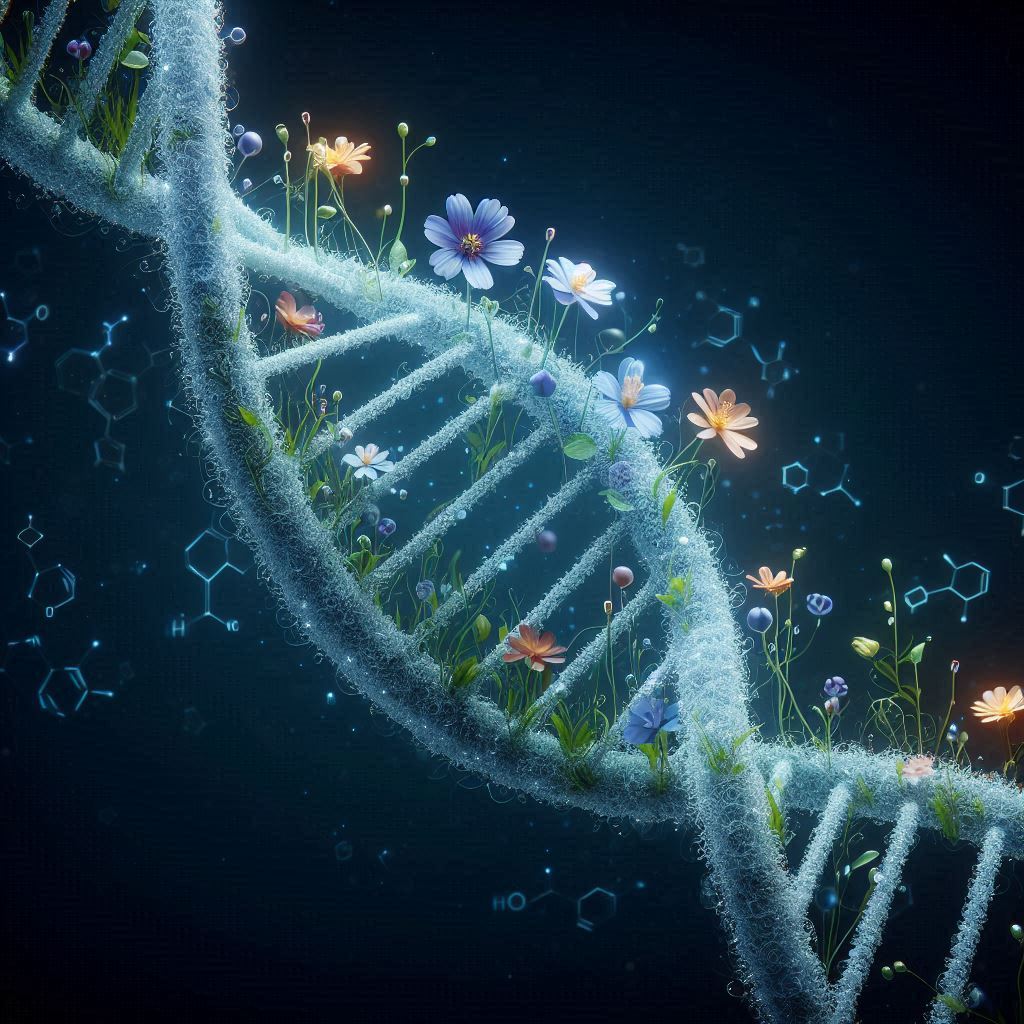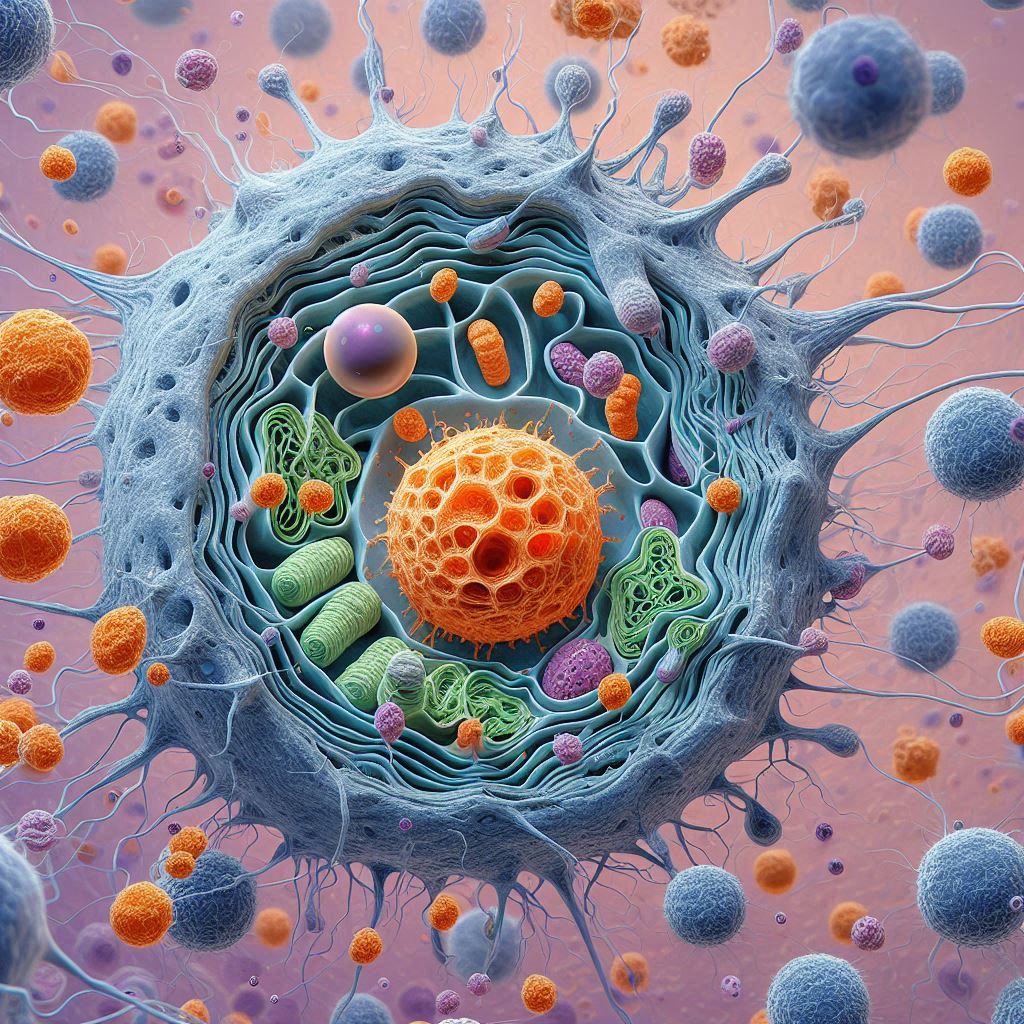Chromosomal anomalies are genetic conditions resulting from changes in the number or structure of chromosomes in a person’s cells. These anomalies can lead to a range of health issues, affecting both physical and cognitive development. Understanding the causes of chromosomal anomalies, their impact on pregnancy and newborns, and how to prevent them through diet, lifestyle, and Ayurvedic practices can significantly improve reproductive health and outcomes.
What Are Chromosomal Anomalies?
Chromosomes are thread-like structures located inside cells that contain genes, the instructions for making proteins essential for growth and development. Humans typically have 46 chromosomes arranged in 23 pairs. Chromosomal anomalies occur when there are extra or missing chromosomes, or when chromosomes have structural abnormalities.

Common chromosomal anomalies include:
- Down Syndrome (Trisomy 21): An extra copy of chromosome 21.
- Turner Syndrome: A condition in females where one of the X chromosomes is missing or partially missing.
- Klinefelter Syndrome: A condition in males with an extra X chromosome (XXY instead of XY).
- Patau Syndrome (Trisomy 13) and Edwards Syndrome (Trisomy 18): Result from extra copies of chromosomes 13 and 18, respectively.
Causes of Chromosomal Anomalies
Several factors can contribute to chromosomal anomalies, including:
- Egg and Sperm Quality: Poor egg and sperm quality can lead to chromosomal abnormalities. These issues may stem from cellular ageing, environmental factors, or genetic predispositions. For instance, older eggs are more likely to have chromosomal abnormalities due to the prolonged period they have been in the ovaries.
- Age Factor: Maternal age is a significant risk factor. Women over the age of 35 have a higher risk of chromosomal anomalies in their babies, primarily because of the increased likelihood of errors during cell division.
- BPA and Phthalates: These chemicals, commonly found in plastics and personal care products, can disrupt endocrine function and potentially affect reproductive health. Studies suggest they may increase the risk of chromosomal anomalies.
- Poor Diet: A diet lacking essential nutrients can impact reproductive health and increase the risk of chromosomal anomalies. Nutritional deficiencies can affect egg and sperm quality.
- Alcohol and Smoking: Both alcohol consumption and smoking have been linked to a higher risk of genetic mutations and chromosomal abnormalities. They can affect the quality of eggs and sperm, leading to increased risks of anomalies.
- Lack of Activity: A sedentary lifestyle can negatively impact overall health and reproductive function. Regular physical activity supports healthy cellular processes and can improve fertility.
Oxidative Stress and Chromosomal Anomalies
Oxidative stress occurs when there is an imbalance between free radicals (unstable molecules) and antioxidants (substances that neutralize free radicals) in the body. This imbalance can lead to damage of cellular components, including DNA, proteins, and lipids. During fertilization, oxidative stress can have significant repercussions on chromosomal integrity.

Impact on Chromosomes During Fertilization
- DNA Damage: Free radicals can cause breaks or mutations in DNA strands. In eggs and sperm, such damage can lead to chromosomal anomalies if not properly repaired. This can result in extra or missing chromosomes or structural abnormalities.
- Impaired Repair Mechanisms: High levels of oxidative stress can overwhelm the cell’s repair mechanisms. This can prevent the effective repair of damaged DNA, leading to the transmission of errors to the embryo.
Oxidative stress plays a crucial role in the development of chromosomal anomalies during fertilization, contributing to birth defects and miscarriages. Managing oxidative stress through antioxidants and a healthy lifestyle can help mitigate these risks and promote better reproductive health.
Prevention Strategies
1. Diet and Nutrition
A well-balanced diet rich in essential nutrients can significantly improve egg and sperm quality, potentially reducing the risk of chromosomal anomalies. Key nutrients include:
- Folic Acid: Essential for DNA synthesis and repair. Sources include leafy greens, beans, and fortified cereals.
- Vitamin D: Supports cellular health and function. Found in fatty fish, fortified milk, and sunlight exposure.
- Vitamin E: An antioxidant that helps protect cells from damage. Sources include nuts, seeds, and vegetable oils.
- Omega-3 Fatty Acids: Support cell membrane health and overall reproductive function. Found in fatty fish, flaxseeds, and walnuts.
- Zinc: Important for sperm production and egg quality. Sources include meat, shellfish, and legumes.
- Coenzyme Q10 (CoQ10): Supports cellular energy and function. Found in meat, fish, and as a supplement.
2. Yoga and Physical Activity
Regular yoga and physical exercise can enhance reproductive health and overall well-being. Benefits include:
- Improved Circulation: Yoga promotes better blood flow, which can enhance reproductive organ function.
- Stress Reduction: Yoga helps manage stress, which can positively impact fertility and reduce the risk of chromosomal anomalies.
- Hormonal Balance: Regular activity helps maintain hormonal balance, essential for healthy egg and sperm production.
3. Lifestyle Changes
- Avoid Toxins: Reduce exposure to BPA and phthalates by opting for natural products and avoiding plastic containers.
- Limit Alcohol and Quit Smoking: Both can negatively impact reproductive health. Reducing or eliminating these substances can improve egg and sperm quality.
- Maintain a Healthy Weight: Obesity or being underweight can affect hormone levels and reproductive health. A balanced diet and regular exercise can help maintain a healthy weight.
4. Ayurvedic Routine
Ayurveda, the traditional Indian system of medicine, offers various practices that support reproductive health:
- Herbal Supplements: Herbs like Ashwagandha and Shatavari are believed to support reproductive health and balance hormones.
- Detoxification: Regular detox practices, such as Panchakarma, can help cleanse the body of toxins that may affect reproductive health.
- Balanced Lifestyle: Ayurveda emphasizes a balanced lifestyle with regular routines, including adequate sleep, stress management, and a balanced diet, to support overall well-being.
Impact on Pregnancy and Newborns
Chromosomal anomalies can have significant effects on pregnancy and newborns:
- Early Miscarriage: Certain anomalies can lead to complications such as miscarriage or stillbirth. Chromosomal abnormalities are a common cause of miscarriage. Errors in chromosome number or structure due to oxidative damage or other, can result in non-viable embryos that fail to develop properly, leading to pregnancy loss.
- Birth Defects: Babies with chromosomal anomalies due to oxidative stress or other, may be born with physical or intellectual disabilities. For example, Down syndrome is associated with developmental delays and physical features such as a flat facial profile. can lead to various birth defects.
- Long-Term Health Issues: Children with chromosomal anomalies may require ongoing medical care and support throughout their lives. Conditions like Turner syndrome and Klinefelter syndrome can impact growth, fertility, and overall health.

General Trends in Birth Defects and Cognitive Disorders in India
- Birth Defects:
- Prevalence: Birth defects are a significant public health issue in India. According to the National Institute of Public Health (NIPH), approximately 1 in 100 babies born in India has a birth defect. The prevalence of birth defects has been a growing concern due to factors such as increased maternal age, environmental exposure, and lifestyle factors.
- Specific Data: Studies and health reports suggest that congenital heart defects, neural tube defects, and cleft lip and palate are among the most common birth defects in India. Data from the Indian Council of Medical Research (ICMR) and various health surveys have indicated a steady or slightly increasing trend in certain types of congenital abnormalities over the past decade.
- Down Syndrome:
- Incidence: Down syndrome, or Trisomy 21, is a common chromosomal disorder. Estimates suggest that the incidence of Down syndrome in India is approximately 1 in 1,000 live births. This rate is consistent with global averages but reflects a high number due to India’s large population.
- Recent Trends: A study published in the Indian Journal of Pediatrics in 2020 noted that there has been an increasing awareness and diagnosis of Down syndrome, possibly due to improved healthcare facilities and diagnostic tools. However, the actual incidence rate has remained relatively stable.
- Autism Spectrum Disorders (ASD):
- Prevalence: The prevalence of autism spectrum disorders has been increasing in India, partly due to greater awareness and better diagnostic practices. According to a 2018 study published in the Indian Journal of Psychiatry, the prevalence of autism in India was estimated to be about 1 in 68 children, which shows a significant increase from previous decades.
- Data from Recent Years: Research published in various journals indicates that the prevalence of ASD in India may be rising due to improved recognition and reporting. However, data from different studies vary, and comprehensive national-level statistics are still limited.
Take Away
Chromosomal anomalies are complex conditions with significant implications for both pregnancy and long-term health. Understanding their causes, including factors like egg and sperm quality, environmental toxins, and lifestyle choices, can help in taking proactive steps to minimize risk. By focusing on a nutritious diet, regular physical activity, and healthy lifestyle choices, along with Ayurvedic practices, individuals can improve reproductive health and potentially reduce the likelihood of chromosomal anomalies. Ensuring that both partners are in optimal health before conception can make a meaningful difference in the health and well-being of their future child.
Thanks for reading!
May mother earth bless every being with the sense of fertility, with a healthy body and with higher consciousness. Respect & Gratitude!








